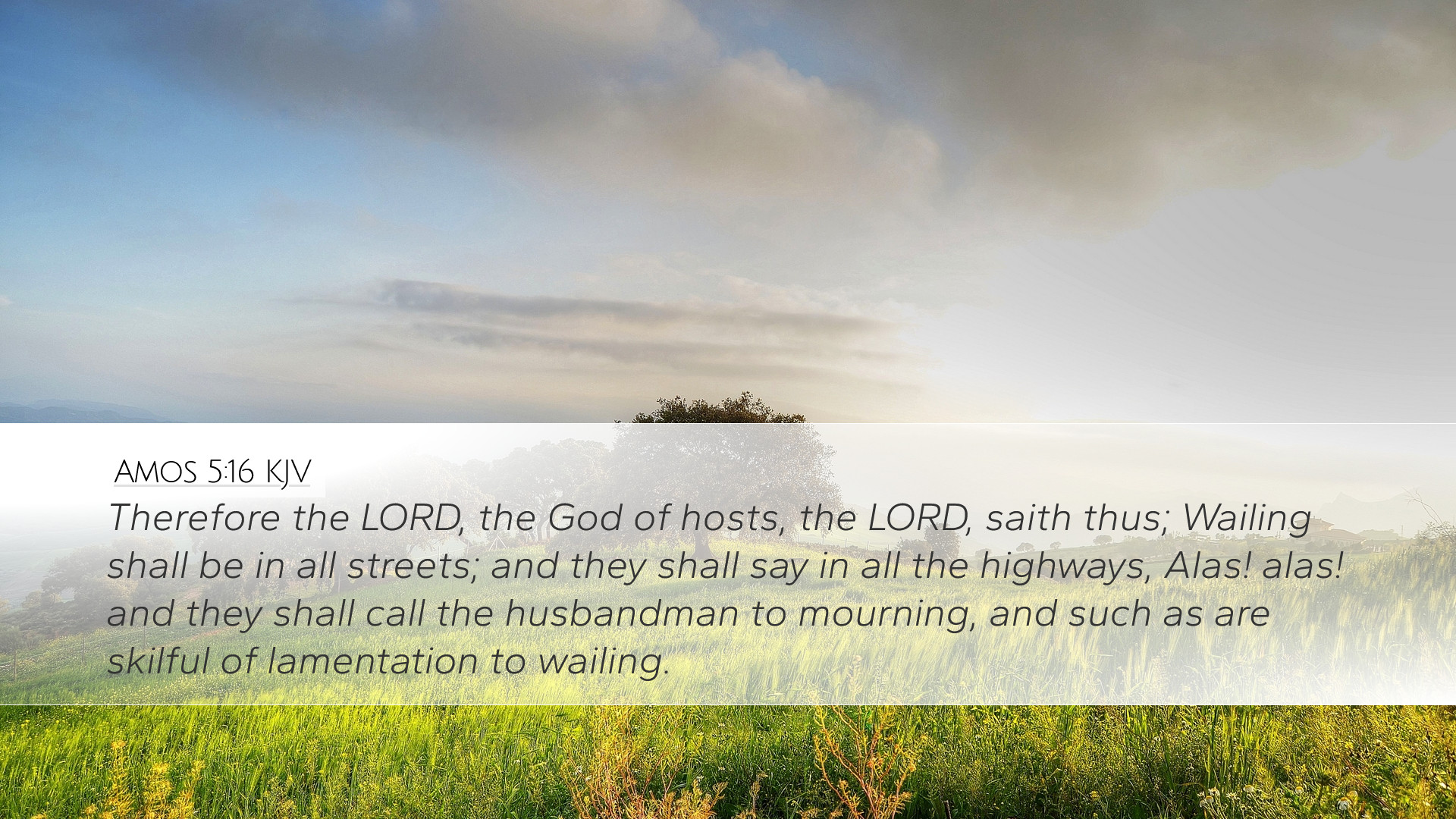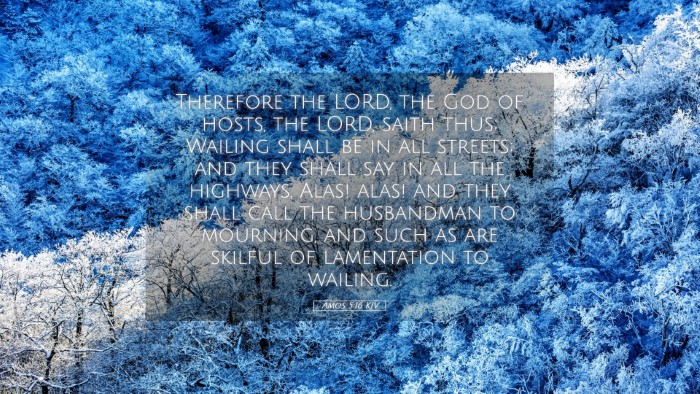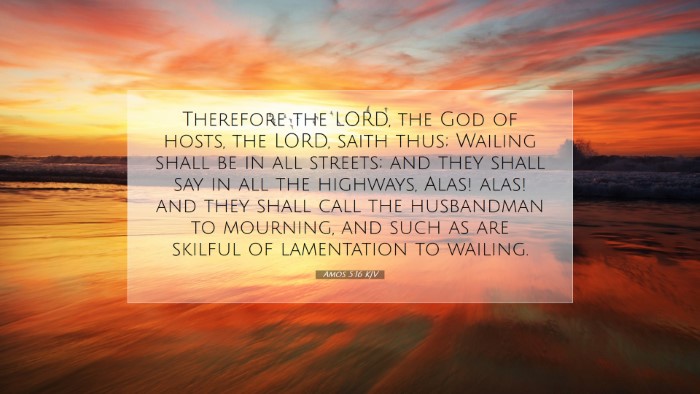Old Testament
Genesis Exodus Leviticus Numbers Deuteronomy Joshua Judges Ruth 1 Samuel 2 Samuel 1 Kings 2 Kings 1 Chronicles 2 Chronicles Ezra Nehemiah Esther Job Psalms Proverbs Ecclesiastes Song of Solomon Isaiah Jeremiah Lamentations Ezekiel Daniel Hosea Joel Amos Obadiah Jonah Micah Nahum Habakkuk Zephaniah Haggai Zechariah MalachiAmos 5:16
Amos 5:16 KJV
Therefore the LORD, the God of hosts, the LORD, saith thus; Wailing shall be in all streets; and they shall say in all the highways, Alas! alas! and they shall call the husbandman to mourning, and such as are skilful of lamentation to wailing.
Amos 5:16 Bible Commentary
Amos 5:16 - Commentary
"Therefore thus saith the Lord God of hosts, the Lord; Wailing shall be in all streets; and they shall say in all the highways, Alas! Alas! And they shall call the husbandman to mourning, and such as are skillful of lamentation to wailing."
Introduction
The verse of Amos 5:16 serves as a solemn warning and prophetic foresight into the resulting desolation due to unrepentant sin and societal corruption. As commentators like Matthew Henry and Albert Barnes elucidate, this verse reflects God’s judgment upon a nation steeped in iniquity, highlighting the inevitability of mourning amidst a community once thriving.
Contextual Analysis
In the context of the Book of Amos, the prophet delivers a strong message against the Northern Kingdom of Israel during a time of apparent prosperity that masked profound moral decay. The following points expound on the repercussions of ignoring God’s mandates:
- Prophetic Voice: Amos speaks from a place of divine authority, presenting the gravity of inevitable grief. Both Henry and Clarke emphasize the prophetic nature by which Amos channels the Lord's voice through these dire warnings.
- Judgment on Sin: The ensuing lamentation signals divine judgment—Henry suggests that wailing signifies the sheer depth of sorrow that corresponds with the people’s failure to follow righteous paths.
- Public Mourning: The streets filled with weeping illustrate a community in ruin. Barnes points out that this image of collective grief amplifies the notion of national calamity straying from God’s way.
Theological Significance
Amos 5:16 evokes theological reflections on God’s holiness and the human response to sin:
- Holiness of God: Commentators note that God's holiness demands justice. Clarke mentions that such judgments are meted out as a reflection of righteousness in the divine order.
- Human Accountability: The lamentations serve as a reminder that humanity bears responsibility to respond to God’s call for repentance. Henry articulates the notion of collective sin that leads to shared consequences.
- Implications for Worship: The departure from true worship—expressed here through indifference to God—leads to lamentation rather than celebration. Barnes highlights that worship devoid of righteous living, results in spiritual barrenness and eventual sorrow.
Practical Applications for Today
This verse resonates with contemporary readers, challenging us to reflect on our spiritual condition and societal practices:
- Urgency of Repentance: In light of Amos's warning, pastors and congregants must heed the call to repent for personal and corporate sins, fostering a revival of true worship.
- Cultivating Mourning for Sin: Recognizing sin’s weight in our communities is essential. The emotional response to sin—just as lamentation is emphasized—should be an integral part of communal faith and worship experiences.
- Community Vigilance: Sending the skillful lamenters to wail indicates the need for community leaders in faith to guide others back to God. This fosters an environment where congregation and leadership collaboratively address sinfulness.
Conclusion
Amos 5:16 powerfully encapsulates the consequences of neglecting God’s commands. As interpreted through the lenses of prominent commentators like Matthew Henry, Albert Barnes, and Adam Clarke, the weight of judgment forebodes a dire need for mourning, and subsequently, for repentance. This solemn reflection serves as a clarion call for all believers to align themselves with God's will, ensuring that their lives and communities are bearing fruits worthy of the calling.


